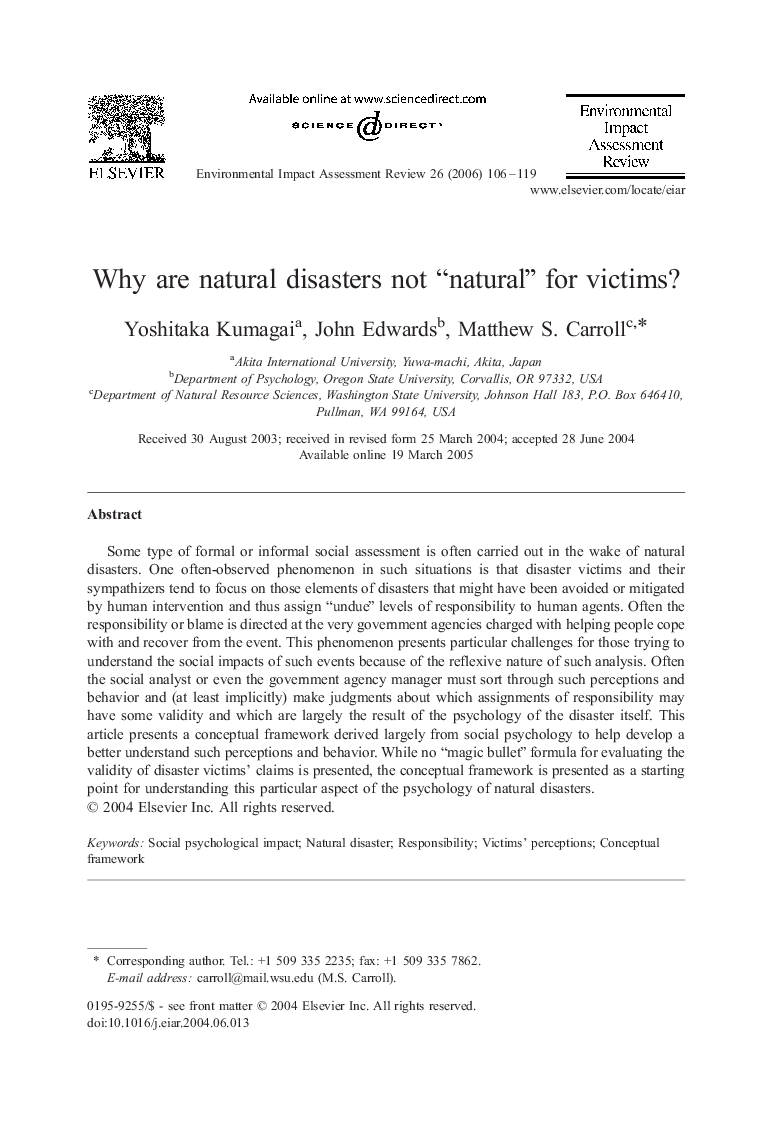| Article ID | Journal | Published Year | Pages | File Type |
|---|---|---|---|---|
| 1053179 | Environmental Impact Assessment Review | 2006 | 14 Pages |
Some type of formal or informal social assessment is often carried out in the wake of natural disasters. One often-observed phenomenon in such situations is that disaster victims and their sympathizers tend to focus on those elements of disasters that might have been avoided or mitigated by human intervention and thus assign “undue” levels of responsibility to human agents. Often the responsibility or blame is directed at the very government agencies charged with helping people cope with and recover from the event. This phenomenon presents particular challenges for those trying to understand the social impacts of such events because of the reflexive nature of such analysis. Often the social analyst or even the government agency manager must sort through such perceptions and behavior and (at least implicitly) make judgments about which assignments of responsibility may have some validity and which are largely the result of the psychology of the disaster itself. This article presents a conceptual framework derived largely from social psychology to help develop a better understand such perceptions and behavior. While no “magic bullet” formula for evaluating the validity of disaster victims' claims is presented, the conceptual framework is presented as a starting point for understanding this particular aspect of the psychology of natural disasters.
